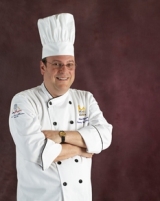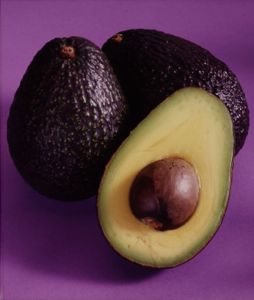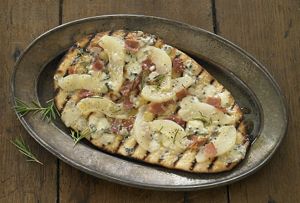Green Tomato: National Restaurant Association Joins “Share the Gulf” Sustainability Initiative
Tuesday, 17 June 2014 13:23
 The 2013 initiative, which has gained much chef and operator support from states bordering the Gulf of Mexico, continues to strive to ensure sustainability of red snapper, grouper and other fish for sale in foodservice.
The 2013 initiative, which has gained much chef and operator support from states bordering the Gulf of Mexico, continues to strive to ensure sustainability of red snapper, grouper and other fish for sale in foodservice.
As part of its efforts to support sustainability practices in the foodservice industry,The National Restaurant Association recently announced it has joined Share the Gulf, a coalition of chefs, restaurateurs, restaurant associations, seafood suppliers, fishermen, consumers and environmentalists working to protect their access to fish in the Gulf states.
“The fresh, local seafood of the Gulf states is essential to the growth of the region’s economy and its varied foodservice businesses,” said Scott DeFife, executive vice president of policy and government affairs for the NRA. “We are committed to helping ensure this seafood is not only fished sustainably so its population continues to grow, but that the voices of small businesses, their employees and customers also are heard.”
The initiative, launched in 2013, aims to ensure the region’s restaurants and grocery businesses maintain an equitable share of the Gulf states’ red-snapper catch.


 Which good fats to eat and which bad fats to avoid? There’s room for more education.
Which good fats to eat and which bad fats to avoid? There’s room for more education. The Research Chefs Association unveiled the latest in culinary arts and food science and technology in Portland, Ore., in March.
The Research Chefs Association unveiled the latest in culinary arts and food science and technology in Portland, Ore., in March. Technomic research reveals significant increased blueberry use across categories, suggests Gen-Y marketing opportunities.
Technomic research reveals significant increased blueberry use across categories, suggests Gen-Y marketing opportunities. Though not new to the market by any stretch, flatbreads, particularly those that say “global,” are enjoying a revolution. A pastry chef-instructor at Kendall College in Chicago reports on the trend, making the case for need-to-know among culinary-arts and pastry/baking students as they embark on their careers.
Though not new to the market by any stretch, flatbreads, particularly those that say “global,” are enjoying a revolution. A pastry chef-instructor at Kendall College in Chicago reports on the trend, making the case for need-to-know among culinary-arts and pastry/baking students as they embark on their careers. The chancellor of Johnson & Wales University tells chefs to follow their passion to achieve success while also becoming agents of change in their industry and careers.
The chancellor of Johnson & Wales University tells chefs to follow their passion to achieve success while also becoming agents of change in their industry and careers. For those visiting Chicago for this year’s National Restaurant Association Restaurant, Hotel-Motel Show, mouths water and palates yearn for one of the City of Big Shoulders’ culinary claims to fame. And among pies, four take the cake.
For those visiting Chicago for this year’s National Restaurant Association Restaurant, Hotel-Motel Show, mouths water and palates yearn for one of the City of Big Shoulders’ culinary claims to fame. And among pies, four take the cake. The challenge of college includes managing multiple demands and a complex schedule, often for the first time as an adult. Something as simple as taking attendance in class can motivate students to not only stay in the course and program, but thrive.
The challenge of college includes managing multiple demands and a complex schedule, often for the first time as an adult. Something as simple as taking attendance in class can motivate students to not only stay in the course and program, but thrive.